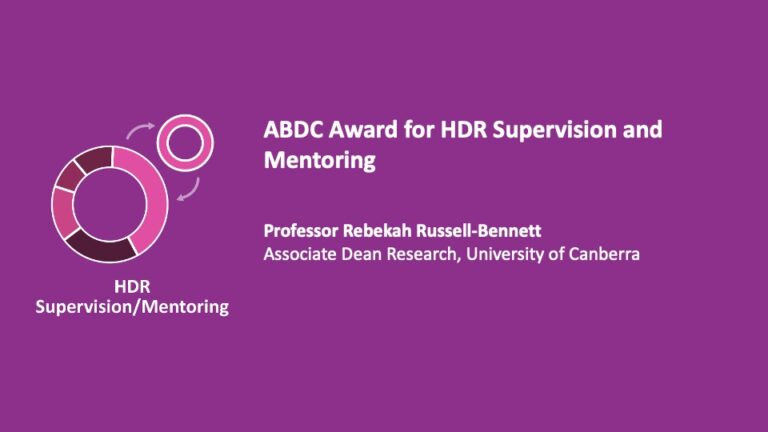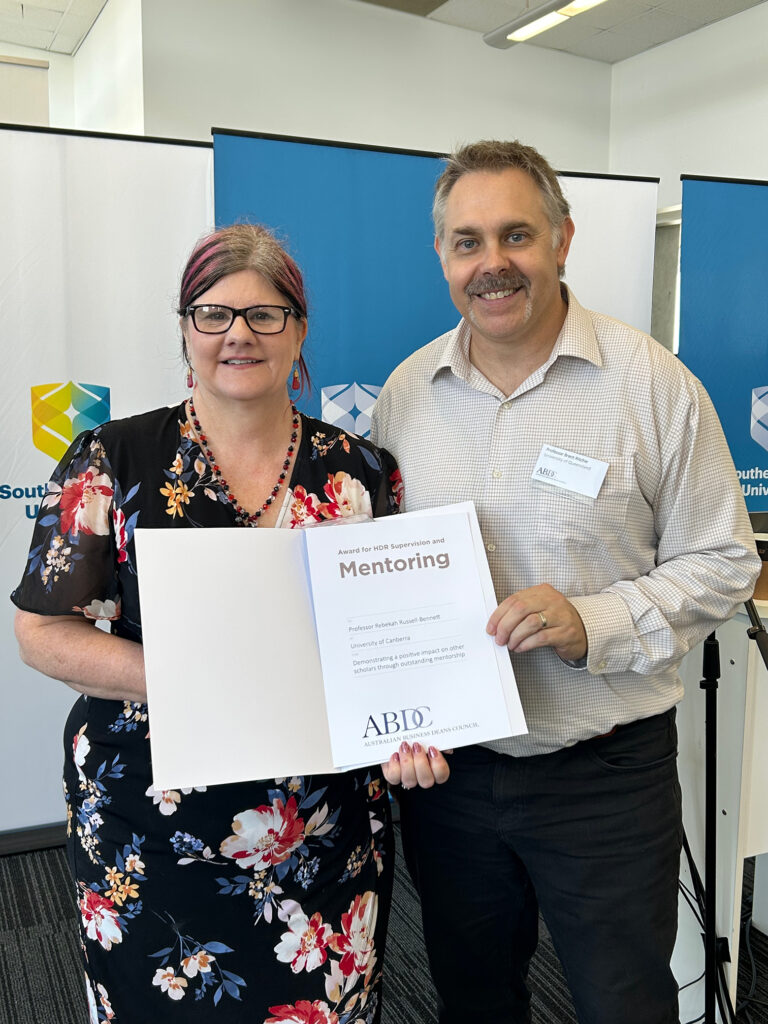2024 Network Awards – HDR Supervision and Mentoring

Winner:
Professor Rebekah Russell-Bennett
Associate Dean Research, University of Canberra
Judges’ comments
The judging panel was impressed with Rebekah’s strong track record of providing intellectual, social, and personal support to HDR students and early career researchers. Her exceptional qualities as a mentor are internationally recognised, with her workshop, ‘Reverse engineering journal articles’ a highlight of the ‘Let’s Talk About Service’ 2024 event that she co-chaired at the University of Namur, attended by over 50 students and postdocs from across Europe. Rebekah is acknowledged for connecting students to her networks and providing tangible strategies for students navigating higher research, including those that support stress management and wellbeing. She is celebrated for her inclusivity in mentoring and supervising students from diverse backgrounds. As one student wrote, “I know I speak on behalf of many of her students when I say that knowing we have her support is a great source of empowerment.”
The nomination
“Rebekah provides intellectual support to her students through rigorous feedback, regular meetings and structured feedback. This is highly effective as evidence by her completion of 49 research students (15 PhD, 9 masters, 25 honours). She currently has 13 PhD students. She has published 72 journal articles with her students to develop their intellectual skills (70% Q1) and further evidence of the intellectual abilities of her students is their ability to publish on their own or with their own students – her students have a collective total of 911 articles according to Google Scholar. Rebekah has two signature intellectual support resource kits she has developed; the first is How to reverse-engineer a journal article, the video recording has 4,700 views on YouTube and is mentioned in the letters of support from international scholars. The second is How to write a literature review with 4100 views on YouTube.”
“Rebekah provides extensive personal and social support, she goes beyond mentorship to sponsorship where she actively seeks opportunities for her students to develop networks and confidence and often gives us the opportunity for herself in favour of her students.”
“Rebekah is highly inclusive in her supervision, almost a quarter of her students come from a non-English speaking background, 70% are women, a number have diverse sexual orientations, and she has students with neurodiversity. Rebekah adapts her supervision style and tasks to align with the strengths of each student and ensures that all her students have opportunities that reflect their needs.”
